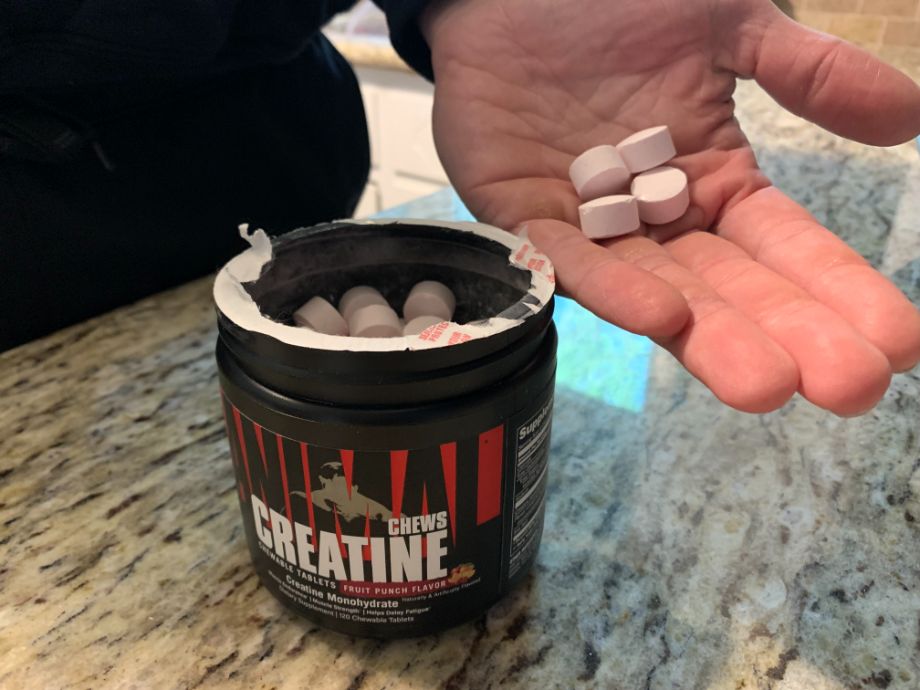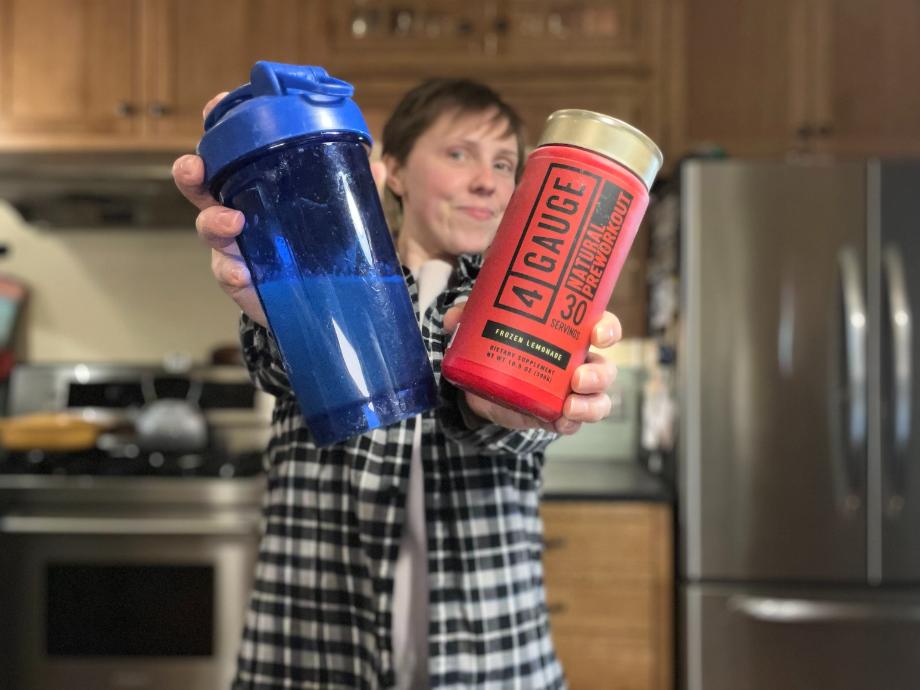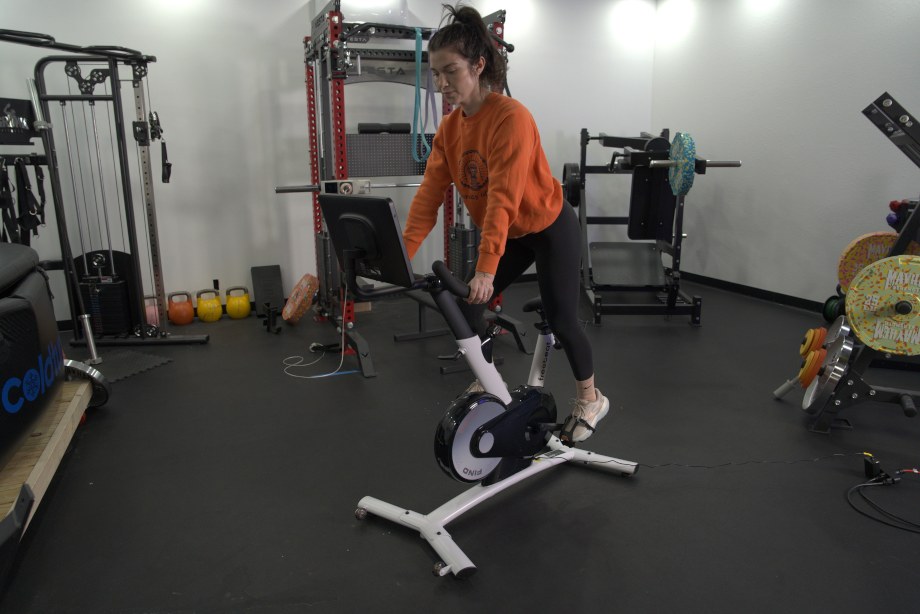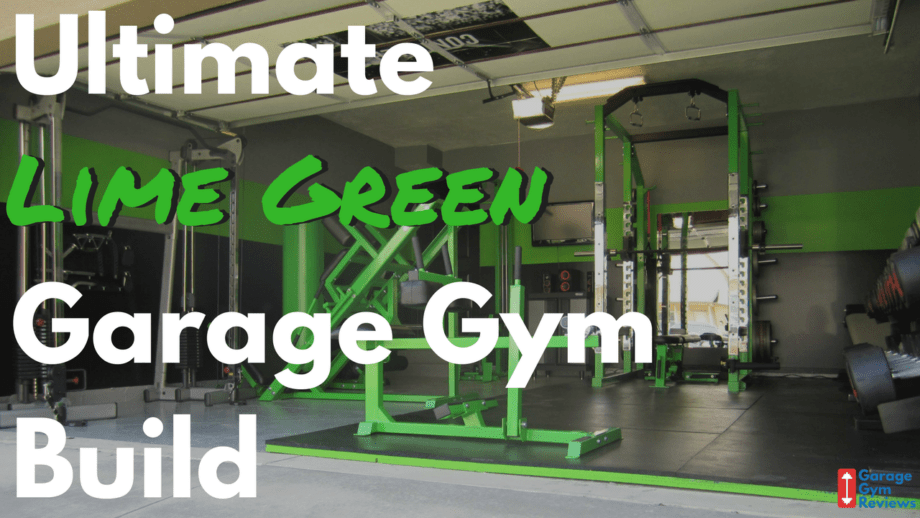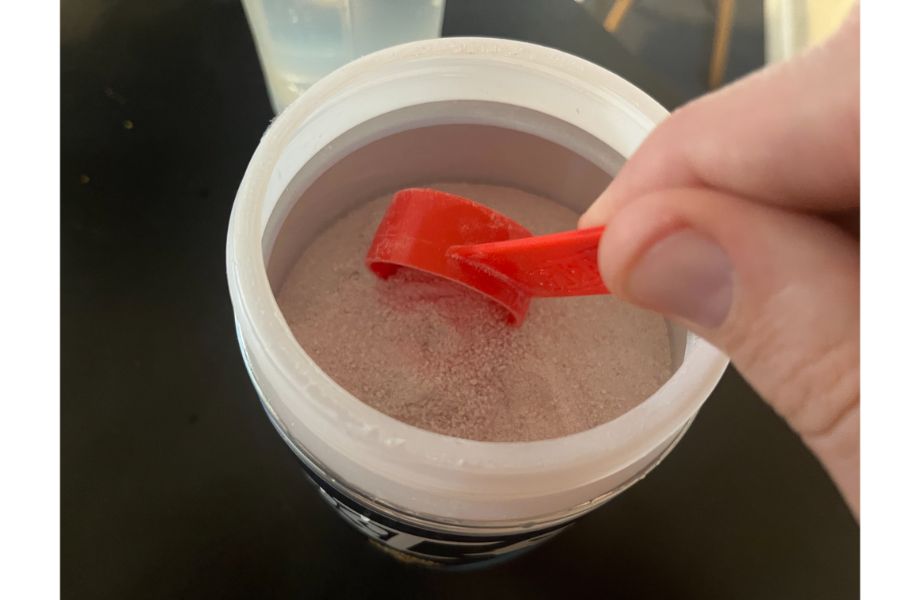When you’re trying to lean out, you may be wondering which supplements are the most effective to support building lean mass and burning fat stores. Next to protein powder, creatine supplements are one of the most popular dietary supplements used by bodybuilders, athletes, and gym aficionados getting serious about making gains and muscle building.
Creatine supports muscle gain and boosts strength and power, but how does it work when you’re trying to shed fat? There’s some confusion around how creatine supplements impact weight and whether they should be used when you’re in an active cutting phase. Cutting is the process of following a specific diet plan to decrease body fat and enhance the visibility of muscle—aka, making you look more “cut.”
In this article, we’re covering all the talking points around taking creatine while cutting. Keep reading to learn if taking creatine while cutting helps or hinders fat loss, plus other pros and cons you need to know before cutting with creatine.
RELATED: What Is Creatine?
Medical disclaimer: This article is intended for educational and informational purposes only. It is not intended as a substitute for medical advice. For health advice, contact a licensed healthcare provider.
Creatine While Cutting: Can It Help with Fat Loss?
If creatine helps you build muscle, can it help with fat loss? It may seem counterintuitive, since many people associate creatine with bulking up, but the answer is yes—taking creatine while cutting can help you lose body fat.
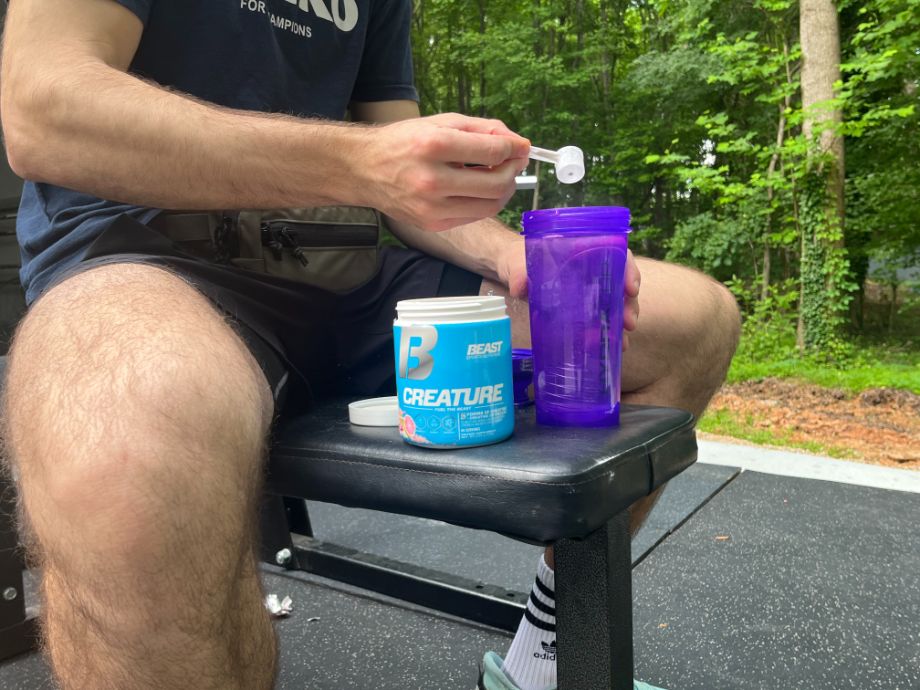
RELATED: Creatine Benefits
To understand how supplementing with creatine impacts body composition during cutting, it helps to review how creatine works in the first place. Creatine supplies energy to muscles during anaerobic exercise. Creatine is stored in muscle tissue as phosphocreatine. Phosphocreatine pulls water into muscles to replenish the body’s main cellular energy currency, ATP (adenosine triphosphate).
A creatine monohydrate supplement1 increases your muscular stores of phosphocreatine, resulting in enhanced muscle strength, power, and athletic performance for a better workout. Whether your goal is setting a new PR (personal record) or building muscle, a creatine supplement can help get you there faster.
Now, if you’ve already been taking creatine before cutting, you likely have gains you’re eager to show off. Cutting helps you lose fat and retain muscle for a leaner physique. Creatine can help you reach your body composition goals both before and during cutting.
RELATED: Does Creatine Help You Lose Weight?
Creatine indirectly helps you lose fat by helping you train with more intensity and build lean mass, which equates to more calories burned both during exercise and at rest. Muscle takes up less space than body fat and burns way more calories, so the more muscle you add, the more calories your body burns.
Researchers have found creatine supplementation does, indeed, help decrease body fat percentage. A meta-analysis of older adults aged 50 and up who combined creatine with resistance training lost more body fat2 than those who took a placebo. Studies3 have routinely found that while creatine increases fat-free mass, it does not cause you to gain fat or interfere with fat loss.
Benefits of Creatine While Cutting
Using creatine while cutting does more than help you power through workouts and grow your muscles—it also helps protect your muscles as you drop fat. Here are all the benefits of taking creatine during a cutting cycle.
Preserves Lean Mass
One of the biggest challenges you face during cutting is protecting lean mass from atrophy. Cutting typically involves eating in a calorie deficit and increased cardio training. When you drastically change energy intake and expenditure, your body responds by burning fat and breaking down skeletal muscle.
Studies have found creatine is effective for helping protect muscles against breakdown during times of stress and injury4. Creatine also provides muscle protective benefits to individuals with degenerative muscular disorders3.
RELATED: Should I Take Creatine On Rest Days?
Although no studies have specifically examined creatine and weight loss, we can suggest that creatine can help preserve lean mass during cutting. It’s believed creatine gives your muscles a signal to grow by pulling water into muscle cells.
Hydrates Muscles
Another benefit of creatine’s ability to attract water is well-hydrated muscles. Hydration is necessary for your muscles to produce energy during exercise, protect muscles from injury, and help muscles recover from training. On the flip side, dehydration can increase the risk for injury and exercise-induced damage.
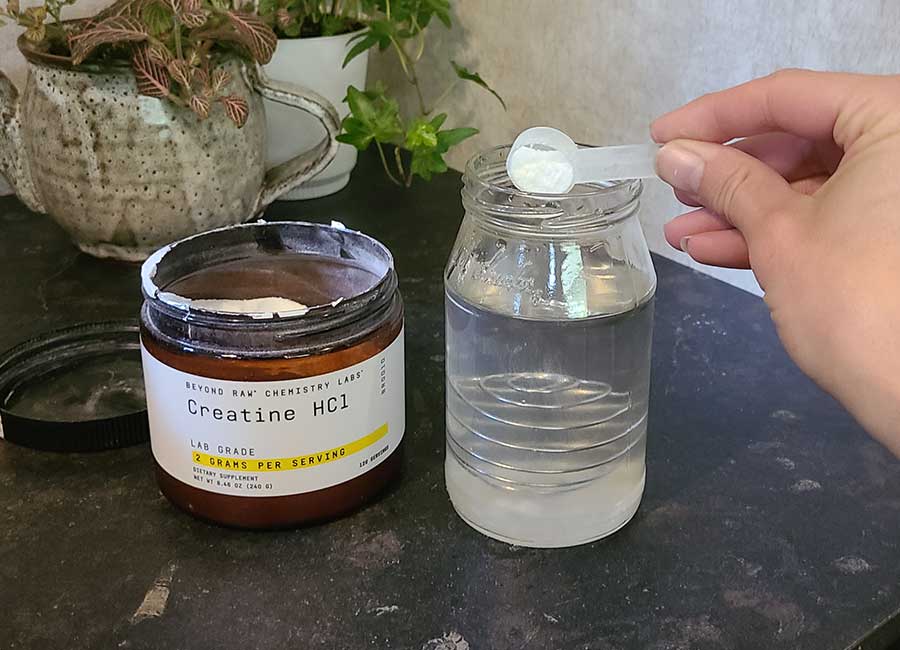
RELATED: How Much Water Should You Drink with Creatine?
Creatine can help keep muscles hydrated and energized for exercise and recovery during cutting. Creatine supplementation also requires you to drink plenty of water. Drinking more water during cutting can maximize fat loss results, since water intake5 helps curb appetite and burn more calories.
Enhances Fat Loss
As mentioned above, creatine supplements are associated with both lean mass gains and fat loss. Individuals who take creatine in addition to training lose more fat than those who train without creatine. A creatine supplement may help you lose more fat while cutting.
Speeds Up Workout Recovery
When you’re training hard, you’re actually causing damage and inflammation to muscle fibers, which forces them to heal and grow. Mitigating the muscle aches you experience the day or two after working out is crucial for subsequent training sessions.
RELATED: Best Muscle Recovery Supplements
Creatine supplementation has been studied for its positive effects on workout recovery. Researchers have found athletes who take creatine recover faster, retain more strength (i.e., have less soreness), and have less inflammatory markers in their blood following intense exercise3. Taking creatine while cutting can help you heal between workouts and make your next training session just as effective as your last.
Potential Side Effects of Using Creatine While Cutting
The human body naturally produces creatine from amino acids. Since it’s a substance your body already makes and stores, creatine supplements are usually well tolerated with few side effects.
If you’re used to taking creatine, you won’t notice any new creatine side effects when you’re cutting. However, if you start taking creatine for the first time while cutting, you may notice some mild side effects, such as:
- Weight gain/bloating—from water retention
- Digestive issues—cramping, nausea, diarrhea
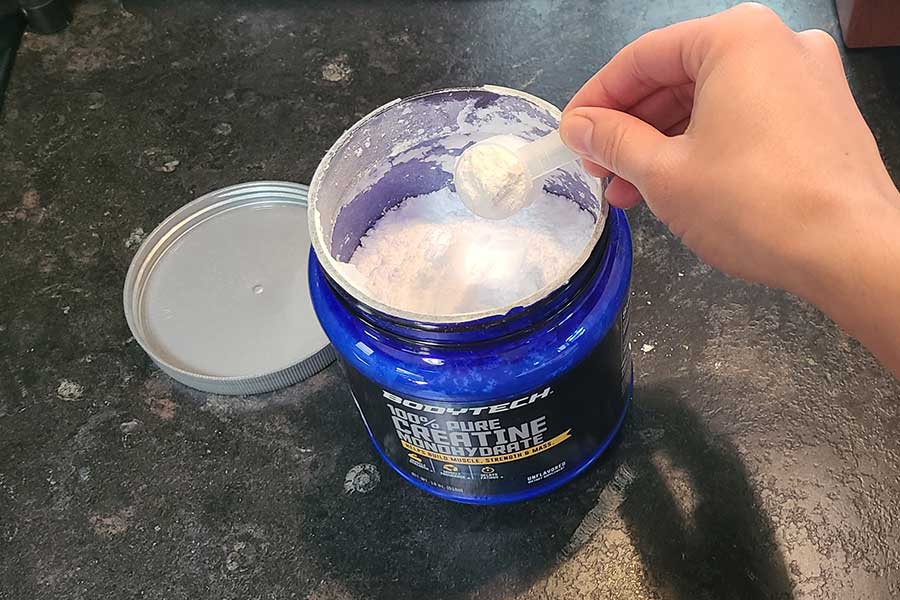
Water weight gain is the main side effect of taking creatine supplements. This is due to creatine attracting water into muscles, which causes some people to feel puffy and/or result in the scale going up a few pounds.
RELATED: Does Creatine Make You Bloated?
The last thing you want is to feel bloated during cutting, but you should know not everyone who takes creatine experiences noticeable water retention. Even if you experience some water retention on creatine, it won’t stop your body from burning fat as you enter a calorie deficit. And remember: hydration is a good thing when it comes to muscular health.
Drinking plenty of water with your creatine supplement and throughout the day can help counteract the puffy feeling. If you’re prone to this side effect on creatine, you can try a creatine supplement designed for faster absorption, such as creatine hydrochloride micronised creatine.
RELATED: Creatine HCl vs Monohydrate
Depending on how you dose creatine, you may experience mild digestive upset. Cramping, nausea, and diarrhea can occur with high doses of creatine, including during a loading phase.
Dosage of Creatine While Cutting
There aren’t separate dosage recommendations for taking creatine while cutting. Whether you’re cutting or not, the dosing remains the same.
If you’re already taking creatine prior to a cutting phase, you can continue with your daily maintenance dose. A maintenance dose is typically 3 to 5 grams of creatine per day.
If you’re just starting creatine, you can start with the maintenance dose or a creatine loading phase. A loading phase refers to taking 20 to 25 grams of creatine for 5 to 7 days. After loading, you would drop your creatine dose to the maintenance amount.
Loading is not necessary, as both methods get you the same results after about a month of taking creatine. However, loading may help saturate muscle creatine stores faster for quicker short-term results.
Creatine From Food Vs. Supplements
While creatine supplements provide a more concentrated dose, you can get creatine the natural way through your diet. Creatine is found in higher quantities in animal-based foods like seafood (the highest concentration), red meat, poultry, and dairy. For a more comprehensive rundown, check out our article “Supplement Naturally With The Best Foods With Creatine” by Destini Moody, RD, CSSD, LD.
If you eat a plant-based diet, you can still find trace amounts of creatine in foods like legumes, whole grains, and some leafy greens, but that amount is negligible in comparison. So, creatine supplementation is the better choice for vegetarian and vegan lifters.
Creatine supplements are also calorie-free, something to keep in mind if you’re watching your intake while cutting.
Creatine While Cutting: Final Thoughts
Creatine does not adversely affect cutting and there’s no reason to stop using creatine supplements during a cutting phase. In fact, taking creatine while cutting may help you shed more fat and help protect hard-earned muscles from dehydration, injury, and atrophy as you reduce caloric intake and increase cardiovascular activity during cutting.
- Creatine does not directly impact weight gain or loss, so it can still be used during cutting.
- Studies have found individuals who combine a creatine supplement with resistance training gain more muscle and lose more fat compared to placebo groups.
- Other benefits of using creatine while cutting include enhanced strength during workouts, improved workout recovery, and preservation of lean mass.
- Creatine pulls water into muscles, which can result in puffiness, bloating, and water retention in some people.
- Water retention associated with creatine use can increase the number on the scale, but it’s not true weight gain and won’t interfere with fat loss.
- If you’ve already been taking creatine, you can continue with a standard maintenance dose, typically 3 to 5 grams of creatine per day, during cutting. If you’re starting creatine with cutting, you can start with the maintenance dose or go through a loading phase, which is a higher dose of creatine for about a week to increase creatine muscle stores faster.
Experts Who Contributed to This Article
Creatine While Cutting: FAQs
Can I lose fat while taking creatine?
The main purpose of taking creatine is to provide more energy to your muscles for improved sports performance, and ultimately, to support muscle growth. However, researchers have found combining creatine supplements with weight training also supports fat loss. People who regularly work out and take creatine lose more body fat than those who work out without creatine.
The bottom line? Taking creatine can support both building muscle and burning fat when used in addition to a healthy diet and exercise.
Does creatine make cutting harder?
Creatine does not make cutting more difficult. In fact, it may enhance your results. Studies have found that individuals who take creatine and engage in resistance training, like weightlifting, lose more body fat than those who don’t take it. Taking creatine while cutting can also help muscles appear larger as you shed fat. That’s because creatine draws water into muscles, which makes them appear fuller.
Other benefits linked to taking creatine during cutting include keeping muscles well hydrated and energized for exercise, improved workout recovery, and decreased risk of muscular injury during exercise.
Can you stay lean on creatine?
There’s some confusion around how creatine supplements impact body weight. The truth is creatine does not directly impact body weight, but it can indirectly help you stay lean by increasing lean muscle mass and decreasing fat mass.
Creatine supports muscle synthesis by providing energy for more power and strength during high-intensity exercise, which results in bigger muscles over time. Oral creatine supplementation combined with strength training is also linked to greater fat loss than resistance training on its own, but the mechanisms aren’t clearly understood.
Should I take creatine while trying to lose belly fat?
The steps you need to take to lose belly fat are the same as losing any kind of body fat. Since creatine supplementation is linked to fat loss and lean mass gains, it may assist with losing fat from the belly area, although targeted fat-loss or spot-reduction is a myth.
These statements have not been evaluated by the Food and Drug Administration. This product is not intended to diagnose, treat, cure, or prevent any diseases.
References
- Kreider RB, Kalman DS, Antonio J, et al. International Society of Sports Nutrition position stand: safety and efficacy of creatine supplementation in exercise, sport, and medicine. J Int Soc Sports Nutr. 2017;14:18. Published 2017 Jun 13. doi:10.1186/s12970-017-0173-z
- Forbes SC, Candow DG, Krentz JR, Roberts MD, Young KC. Changes in Fat Mass Following Creatine Supplementation and Resistance Training in Adults ≥50 Years of Age: A Meta-Analysis. J Funct Morphol Kinesiol. 2019;4(3):62. Published 2019 Aug 23. doi:10.3390/jfmk4030062
- Antonio J, Candow DG, Forbes SC, et al. Common questions and misconceptions about creatine supplementation: what does the scientific evidence really show?. J Int Soc Sports Nutr. 2021;18(1):13. Published 2021 Feb 8. doi:10.1186/s12970-021-00412-w
- Kreider RB, Stout JR. Creatine in Health and Disease. Nutrients. 2021;13(2):447. Published 2021 Jan 29. doi:10.3390/nu13020447
- Çıtar Dazıroğlu ME, Acar Tek N. Water Consumption: Effect on Energy Expenditure and Body Weight Management. Curr Obes Rep. 2023;12(2):99-107. doi:10.1007/s13679-023-00501-8


